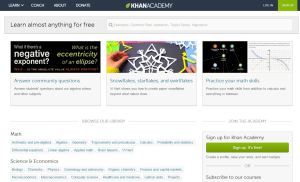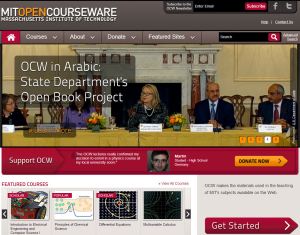 American educator Salman Khan, a graduate of MIT and Harvard, started the Khan Academy in 2006 for the purpose of making “a free, world-class education available for anyone, anywhere.” Khan, a mathematician by training, features videos of an electronic blackboard on which he works out math problems while explaining them in voice-over. His site has expanded its offerings until now it not only hosts lessons in math, but also computer programming, economics and even art history. Site registration is free, and those who complete courses can earn “badges” for their accomplishments. The lessons are aimed at a college preparatory level. Still, if I had to brush up my algebra, I would click right in to Khan Academy. Khan Academy lessons are available through free apps, too.
American educator Salman Khan, a graduate of MIT and Harvard, started the Khan Academy in 2006 for the purpose of making “a free, world-class education available for anyone, anywhere.” Khan, a mathematician by training, features videos of an electronic blackboard on which he works out math problems while explaining them in voice-over. His site has expanded its offerings until now it not only hosts lessons in math, but also computer programming, economics and even art history. Site registration is free, and those who complete courses can earn “badges” for their accomplishments. The lessons are aimed at a college preparatory level. Still, if I had to brush up my algebra, I would click right in to Khan Academy. Khan Academy lessons are available through free apps, too.
Khan Academy
http://www.khanacademy.org








